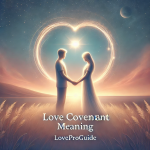Today topic is Issues in Relationship. So relationships are complex and dynamic, requiring continuous effort and commitment from both partners. While challenges are inevitable, understanding common issues and knowing how to address them can help strengthen your bond and ensure a healthier, more fulfilling relationship. In this article, we will explore various issues in relationships and provide practical solutions for overcoming them. how many times should husband and wife make love. So let’s get started of Issues in Relationships.
How to Fix Issues in a Relationship?
Fixing issues in a relationship requires open communication, empathy, and a willingness to work together. Here are some steps to help resolve conflicts: Issues in Relationships
Open Communication:
Communication is the cornerstone of any successful relationship. Talk openly and honestly about your feelings and concerns. It’s important to express your thoughts clearly and without blaming your partner. Use “I” statements to focus on your own experiences rather than criticizing. For example, say “I feel upset when…” instead of “You always…”. Listen actively to your partner without interrupting or judging, showing that you value their perspective.
Empathy:
Empathy involves understanding and sharing the feelings of your partner. Try to put yourself in their shoes and comprehend their emotions. Show compassion and validate their feelings by acknowledging their experiences. Saying things like “I understand why you feel this way” or “It makes sense that you are upset” can go a long way in making your partner feel heard and understood.
Compromise:
Relationships often require compromise to ensure both partners feel satisfied and valued. Finding common ground is crucial. This means both partners should be willing to make concessions. It’s not about one person winning an argument but about finding a solution that works for both. For instance, if you’re deciding on how to spend the weekend, combine your interests and make a plan that includes activities both enjoy.
Seek Professional Help:
Sometimes, resolving conflicts on your own can be challenging, and it might be beneficial to seek the help of a relationship counselor or therapist. A professional can provide an objective perspective and offer strategies for effective communication and conflict resolution. They can help you navigate through deep-seated issues and improve your relationship dynamics.
Rebuild Trust:
Trust is fundamental in any relationship, and once broken, it can take time to rebuild. Be consistent in your actions, reliable in your promises, and transparent in your communication. Trust-building involves honesty, keeping commitments, and showing your partner that they can depend on you. If trust has been damaged, it’s important to discuss what steps are needed to restore it and follow through on those commitments.
Tips:
- Create a Safe Space: Ensure that both partners feel safe to express their feelings without fear of judgment or retribution. This encourages openness and honesty.
- Practice Active Listening: Focus fully on your partner when they speak. Nod, maintain eye contact, and respond appropriately to show that you are engaged.
- Set Aside Regular Time for Discussions: Dedicate specific times to discuss relationship issues calmly and without distractions.
- Avoid Blame and Criticism: Focus on solutions rather than assigning blame. Use constructive language to discuss problems.
- Work on Self-Improvement: Sometimes relationship issues stem from personal insecurities or behavioral patterns. Working on personal growth can positively impact the relationship.
How to Fix Losing Feelings?

Losing feelings in a relationship can be distressing, but it’s not always a sign that the relationship is over .Is It Normal to Lose Feelings in a Relationship?
- Identify the Cause: Reflect on what might have caused the shift in feelings. It could be due to stress, routine, lack of communication, or unresolved conflicts.
- Reignite the Spark: Spend quality time together doing activities you both enjoy. Try new experiences to create excitement and build new memories.
- Improve Communication: Talk openly about your feelings with your partner. Discuss ways to reconnect emotionally and physically.
- Seek Counseling: A therapist can help explore underlying issues and provide strategies to reignite passion and connection.
Tips:
- Express Appreciation: Regularly express gratitude for your partner and acknowledge their efforts.
- Be Present: Engage fully in your interactions with your partner, showing genuine interest and attentiveness.
- Nurture Physical Intimacy: Physical closeness, such as hugging, holding hands, or cuddling, can strengthen emotional bonds.
What Are the 5 Steps to Fix a Relationship?
Fixing a relationship often involves a structured approach. Here are five steps to guide you:
- Acknowledge the Problem: Both partners must recognize that there is an issue that needs addressing. Denial can prevent progress.
- Open Communication: Discuss the problem openly and honestly. Share your feelings and listen to your partner’s perspective.
- Develop a Plan: Create a plan to address the issue. This may involve setting goals, making compromises, or seeking professional help.
- Implement Changes: Take actionable steps to implement the agreed-upon changes. This requires commitment and consistency from both partners.
- Evaluate Progress: Regularly assess the progress and make adjustments as needed. Celebrate improvements and address any setbacks promptly.
Tips:
- Be Patient: Change takes time. Be patient with yourself and your partner as you work through the process.
- Stay Positive: Focus on the positive aspects of your relationship and the progress you are making.
- Seek Support: Lean on friends, family, or a therapist for support during challenging times.
What Is the Main Problem in a Relationship?

The main problem in many relationships is poor communication. Misunderstandings, assumptions, and lack of open dialogue can lead to conflicts and dissatisfaction.
Tips:
- Improve Communication Skills: Practice active listening, use “I” statements, and ensure both partners feel heard and understood.
- Set Aside Time for Conversations: Regularly dedicate time to discuss your relationship and any issues that arise.
- Be Honest and Transparent: Honesty builds trust and prevents misunderstandings. Be open about your feelings and intentions.
What Are the 25 Most Common Relationship Problems Often Encountered by Couples?
Understanding common relationship problems can help you identify and address issues before they escalate. Here are 25 common problems:
- Poor Communication
- Trust Issues
- Jealousy
- Infidelity
- Financial Stress
- Lack of Intimacy
- Unresolved Conflicts
- Different Life Goals
- Incompatibility
- Family Interference
- Stress and Anxiety
- Different Parenting Styles
- Lack of Support
- Dependency
- Addiction Issues
- Lack of Quality Time
- Emotional Neglect
- Sexual Incompatibility
- Unmet Expectations
- Resentment
- Controlling Behavior
- Poor Conflict Resolution Skills
- Lack of Appreciation
- Power Struggles
- Routine and Boredom
Tips:
- Identify Problems Early: Recognize and address problems early to prevent them from escalating.
- Seek Solutions Together: Work collaboratively with your partner to find solutions.
- Be Proactive: Take preventive measures to avoid common relationship pitfalls.
How Do Couples Solve Problems?

Couples can solve problems by working together and using effective strategies:
- Open Communication: Discuss the problem openly and honestly. Share your feelings and listen to your partner’s perspective.
- Find Common Ground: Identify areas of agreement and work towards a solution that satisfies both partners.
- Seek Compromise: Be willing to make concessions and find a middle ground.
- Use Conflict Resolution Skills: Apply conflict resolution techniques such as active listening, empathy, and problem-solving.
- Seek Professional Help: If needed, seek the help of a relationship counselor or therapist.
Tips:
- Stay Calm: Approach conflicts with a calm and composed demeanor.
- Focus on Solutions: Concentrate on finding solutions rather than dwelling on the problem.
- Work as a Team: Collaborate with your partner to overcome challenges together.
What Do Couples Struggle with the Most?
Couples often struggle with communication, trust, and intimacy issues. These fundamental aspects of a relationship can lead to conflicts and dissatisfaction if not addressed.
Tips:
- Enhance Communication: Regularly engage in open and honest conversations with your partner.
- Build Trust: Be reliable, consistent, and transparent to build and maintain trust.
- Nurture Intimacy: Spend quality time together and prioritize physical and emotional closeness.
How to Solve Relationship Problems Without Breaking Up?
Solving relationship problems without breaking up requires commitment, patience, and effort from both partners:
- Address Issues Early: Identify and address problems as soon as they arise to prevent them from escalating.
- Communicate Effectively: Engage in open and honest communication. Listen to your partner and express your feelings clearly.
- Seek Compromise: Find solutions that satisfy both partners by making necessary concessions.
- Focus on Positives: Highlight the positive aspects of your relationship and work towards strengthening them.
- Seek Professional Help: If needed, seek the guidance of a relationship counselor or therapist.
Tips:
- Stay Committed: Show commitment to resolving issues and improving the relationship.
- Be Patient: Understand that resolving conflicts takes time and effort.
- Work as a Team: Collaborate with your partner to overcome challenges together.
What Is the Hardest Time in a Relationship?

The hardest time in a relationship can vary, but common challenging periods include:
- Initial Adjustment: The beginning of a relationship can be challenging as partners adjust to each other’s habits and expectations.
- Major Life Changes: Events such as moving in together, marriage, having children, or career changes can strain a relationship.
- Routine and Boredom: Over time, routine and boredom can set in, leading to dissatisfaction and conflicts.
Tips:
- Stay Flexible: Be open to changes and adjustments as you navigate different stages of the relationship.
- Communicate Openly: Discuss your feelings and concerns with your partner during challenging times.
- Keep the Spark Alive: Continuously work on keeping the relationship exciting and fulfilling.
Who Falls Harder in a Relationship?
The intensity of feelings can vary between individuals, but some studies suggest that men may fall in love faster and harder than women. However, this can differ based on personal experiences and individual differences.
Tips:
- Acknowledge Feelings: Recognize and validate your own feelings and those of your partner.
- Communicate Openly: Share your emotions with your partner and discuss your relationship’s pace.
- Build a Strong Foundation: Focus on building a strong emotional connection and mutual understanding.
What’s the Hardest Stage in a Relationship?
The hardest stage in a relationship can vary, but common challenging stages include:
- Honeymoon Phase Ending: When the initial excitement fades, partners may face the reality of their differences.
- Routine and Boredom: Over time, routine and boredom can set in, leading to dissatisfaction and conflicts.
- Major Life Changes: Events such as moving in together, marriage, having children, or career changes can strain a relationship.
Tips:
- Maintain Excitement: Continuously work on keeping the relationship exciting and fulfilling.
- Communicate Openly: Discuss your feelings and concerns with your partner during challenging stages.
- Seek Support: Lean on friends, family, or a therapist for support during difficult times.
What Is the 7-Month Relationship Stage?

The 7-month relationship stage often marks a significant milestone where the initial excitement of the honeymoon phase may start to fade. Partners begin to see each other’s flaws and may face challenges in adjusting to a more stable, less intense phase of the relationship.
Tips:
- Acknowledge Changes: Recognize that it’s normal for the initial excitement to diminish and that deeper, more stable love can develop.
- Communicate Openly: Discuss your feelings and any concerns about the changes in the relationship.
- Strengthen Connection: Focus on building a deeper emotional connection and understanding. If you understand this content Issues in Relationships. Please comment below. Issues in Relationships
Final Thoughts
Final word of Issues in Relationships. Understanding and addressing common relationship issues is crucial for maintaining a healthy and fulfilling partnership. Open communication, empathy, and a willingness to work together are essential for resolving conflicts and strengthening your bond. By recognizing and addressing problems early, seeking compromise, and maintaining a positive outlook, couples can overcome challenges and build a strong, lasting relationship. Remember, every relationship requires effort, patience, and mutual respect to thrive. The end of Issues in Relationships.











